When it comes to the trajectory of success, bands have always been my preferred metric.
Before they are noticed – when they have no large following to consider and no extensive backing "helping" shape their music – their output most closely resembles who they really are: that's how you get horns on a No Doubt album, Bon Scott regaling you with his "Big Balls" or the odd syncopation of Cage the Elephant's debut that, nonetheless, really works.
Once they are established and need to be "good" (i.e. sell lots of records), their compositions become more competent and elaborate but, at the same time, lose some of the freedom and joy they had when they were Just Making Music. And, finally, if they Make It Big, they generally stop caring about small details like effort or integrity and coast along on name recognition, collaborations or covers to rake in the dough.
As in all generalizations, outliers exist, but this arc occurs often enough for even a pig like me to notice – and not just in music, as Harebrained Schemes' Shadowrun trilogy handily attests.
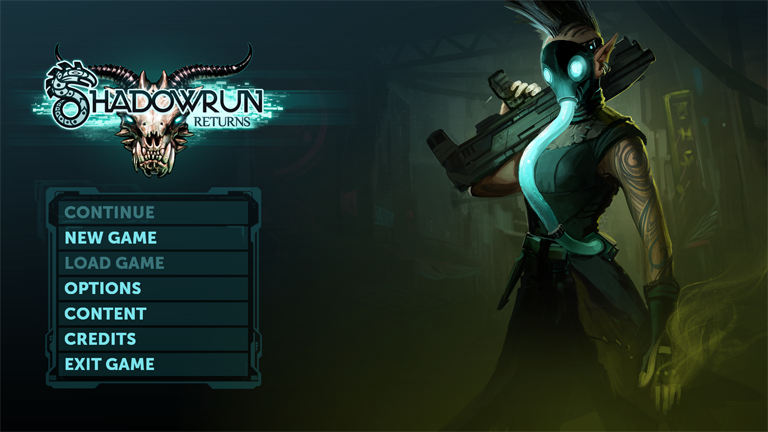
The Rise
Back in 2014, when Shadowrun Returns first came out, it was a pleasant surprise: the resurgence of a beloved RPG franchise, the first "proper" computer game from a studio previously known for two mobile titles and the promise of ongoing (though player generated) content via inclusion of a level editor.
As a game, Shadowrun Returns functioned well enough. Fairly linear but well-made, it was a Unity-powered, isometric RPG in the vein of Fallout or Arcanum (real time movement, turn-based combat); that shipped with a single campaign called "Dead Man's Switch," which saw your character try to honor the request of a former pal from beyond the grave.
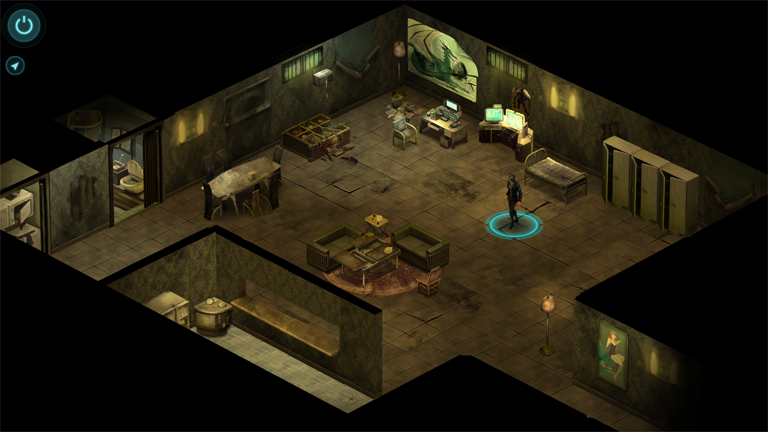
Though narrow in scope (few alternate paths and minimal branching), "Dead Man's Switch" offered enough latitude for the five races / six classes you could play so that no combination felt left out or underused. And while the plot, eventually, got a little weird ("Bugs! Get 'em off! Get 'em off!" to quote Eek the cat); it was engaging and inventive enough to make for about 15 hours of enjoyable gaming.
Unity (being Unity) offered a few slight hiccups (like longer than necessary load times or character renderings that simply refused to load), the game had no manual save system and the promise of further content never really materialized, but – overall – Shadowrun Returns was a decent little game, which HBS capitalized on by releasing what would turn out to be their magnum opus: Dragonfall.
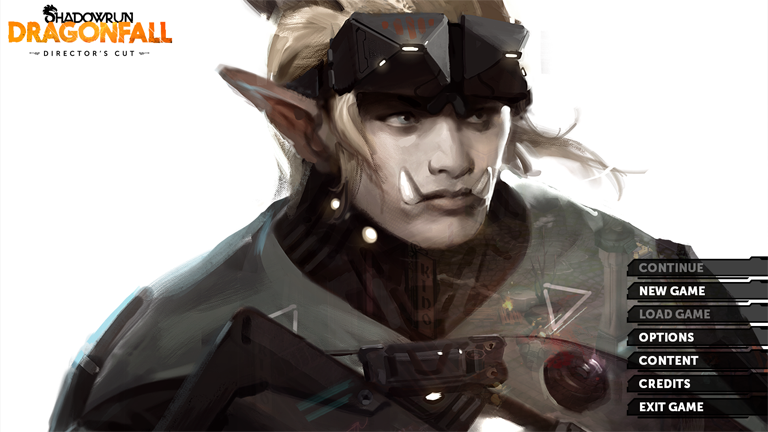
The Apex (pun intended)
Even as (upon its initial release) a mere DLC, Shadowrun: Dragonfall's characters and story set it apart from the original. A deeper, more personal experience, it cast the player as a 'runner who came to the free state of Berlin to help a friend on a seemingly simple gig only to get tangled up in something much larger, much more dangerous and sinister to boot.
With a memorable cast, a more fleshed-out setting and plenty of side jobs you could undertake in between servings of a main plot delectable enough for PC Gamer to call it "one of the most memorable and complex RPG stories of the decade," Dragonfall was The Real Deal: a proper roleplaying game HBS could rightly be proud of.
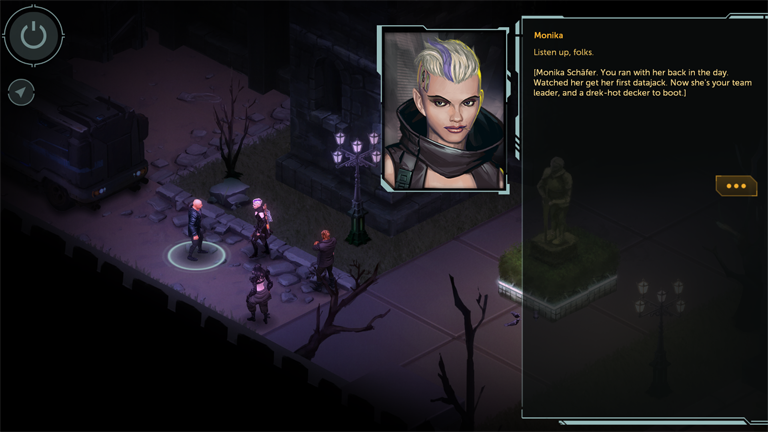
Thanks to its success, the studio later released a standalone Director's Cut, which improved the performance a little, (finally) added a manual save system and – most importantly – included five missions' worth of additional content, further enhancing the already impressive story and stretching the duration of Dragonfall well into the respectable 30-40 hour bracket.
The only shortcoming of the game was it didn't really improve or change the Returns' mechanics at all, so while the characters and story were incredible, the gameplay boiled down to the same routine you were already used to. If HBS intended to repeat the success of Dragonfall, it was clear they would need to enrich or stratify the gameplay somehow. What they did instead, however, was double-down on Dragonfall's formula, hoping to roll a natural...
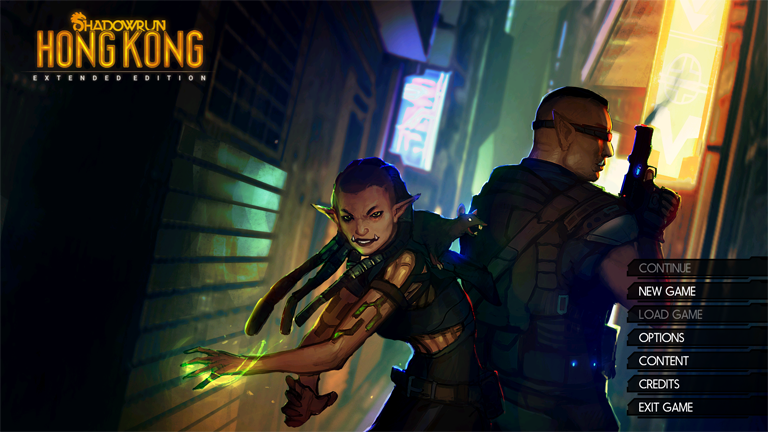
The Backslide
What HBS got instead was (to stick with the craps analogy) a — push, I guess? Their third and last game in the Shadowrun series – Shadowrun: Hong Kong – boasted the most advanced visuals and largest scale of the three games, but offered the same, by now tired, gameplay and writing that – while competent – simply didn't stretch to the lofty heights Dragonfall managed to attain. So while the Hong Kong Free Enterprise Zone was big enough, its content was simply insufficient to infuse it with life or interest.
As with Dragonfall, HBS followed up Hong Kong with an Extended Edition that fixed some bugs and added an extra campaign, but the base experience – while not bad – simply wasn't involving or revolutionary enough to be memorable. Clocking-in at about the same length as its predecessor, Shadow Run: Hong Kong offered enough gameplay, but came up short on incentive. I played Dragonfall through – beginning to end, exploring all side missions – several times; Hong Kong? I could hardly be bothered to finish once.
Summation
I am quite happy the Shadowrun games were made. While only one is exemplary, all three are eminently playable and offer a different, magic-infused, spin on the cyberpunk genre that is truly unique. So while it would have been nice to see more HBS-authored campaigns for Shadowrun Returns that could be explored with an increasingly more powerful character (á la NWN); deeper, more involved gameplay mechanics for Dragonfall or any form of innovation in Hong Kong, the trio is fine as they are – with Shadowrun: Dragonfall by far the best of the three and, indeed, a gem in its own right.
If you don't mind simplified, linear gameplay with limited replay value and want to experience a well-realized cyberpunk world that teems with shamans, demons, mystics, elves, dwarves and even dragons (!), give the Shadowrun games a go. Dragonfall aside, you probably won't want to play them more than once, but – that single playthrough? It'll be well worth your time.
Pig Recommends:
- -keeping an eye out for what Harebrained Schemes gets up to next; free of Paradox clutches as of January 1 (Happy New Year, by the way), the wabbits have rejoined proud indie ranks once again; with Weisman off at a new company and the majority of past HBS success tied to IPs he helped create, it will be interesting to see what direction they take for their next project; whatever it turns out to be, this pig, at least, will be keeping a trotter crossed for its success;
